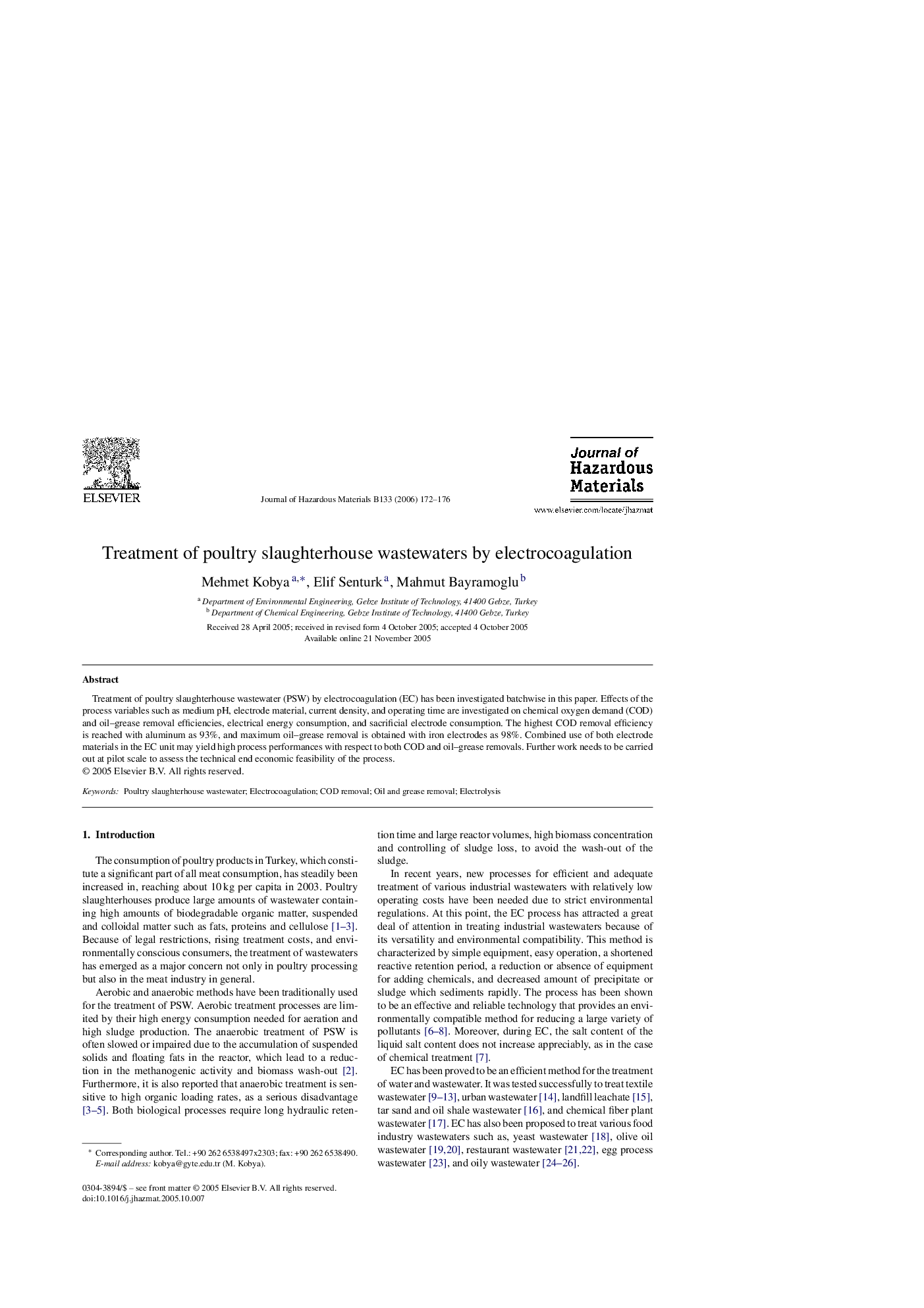| Article ID | Journal | Published Year | Pages | File Type |
|---|---|---|---|---|
| 585191 | Journal of Hazardous Materials | 2006 | 5 Pages |
Abstract
Treatment of poultry slaughterhouse wastewater (PSW) by electrocoagulation (EC) has been investigated batchwise in this paper. Effects of the process variables such as medium pH, electrode material, current density, and operating time are investigated on chemical oxygen demand (COD) and oil-grease removal efficiencies, electrical energy consumption, and sacrificial electrode consumption. The highest COD removal efficiency is reached with aluminum as 93%, and maximum oil-grease removal is obtained with iron electrodes as 98%. Combined use of both electrode materials in the EC unit may yield high process performances with respect to both COD and oil-grease removals. Further work needs to be carried out at pilot scale to assess the technical end economic feasibility of the process.
Related Topics
Physical Sciences and Engineering
Chemical Engineering
Chemical Health and Safety
Authors
Mehmet Kobya, Elif Senturk, Mahmut Bayramoglu,
